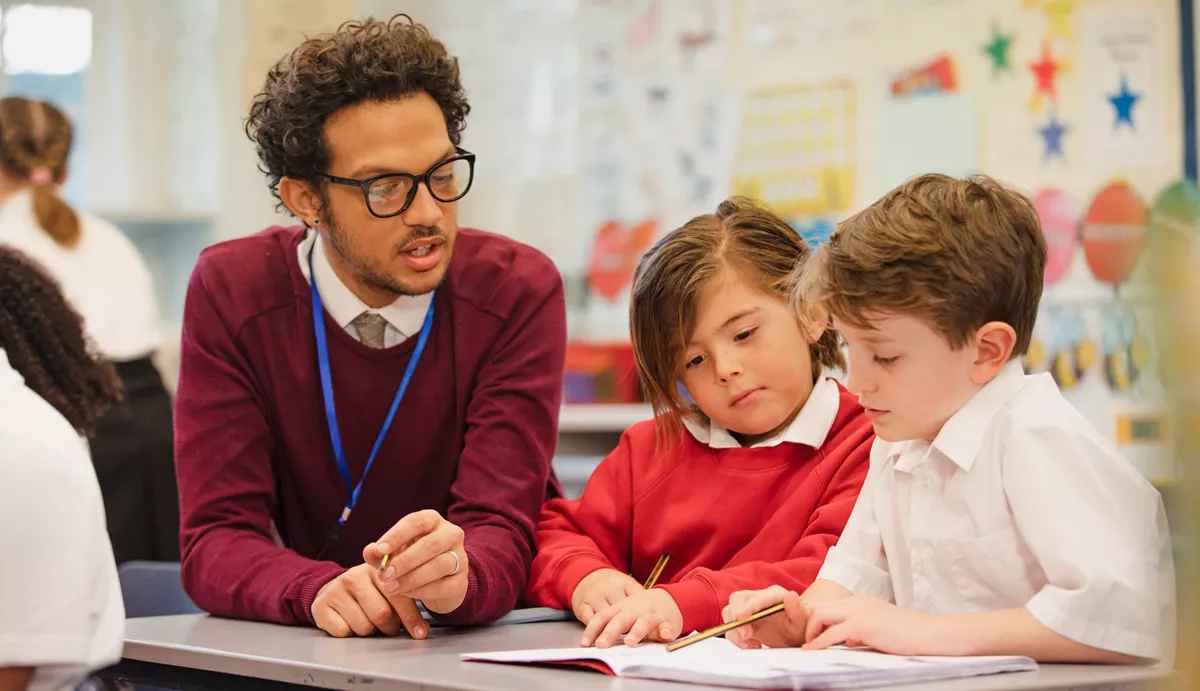Work skills for a more sustainable future podcasts




The world of work is changing rapidly and one of the factors driving these changes is the response to climate change. In the UK, almost all sectors and professions aim to become more sustainable to meet net-zero targets.
This will have a significant impact on the job market that students will enter when they leave education – both in the types of jobs available and the skills they require.
How can educators help prepare students for the changing job landscape?
Our series of mini podcasts explores this question by talking to a panel of experts who discuss the latest research and trends in the labour market and the key skills gaps that businesses are facing as they adapt to net-zero. With particular focus on the link between jobs and moving towards a more sustainable future, you will hear why core transferable skills like adaptability, creativity, leadership, and communication (listening and speaking) are set to be in high demand across all sectors.
Hosted by Stacey Drake, an experienced Careers and Employability Lead at Daventry Hill School, the interviews share practical tips for what the trends mean and how to bring them into the classroom. The interviews can be great way to boost your knowledge of sustainable careers and engage students in conversations about their futures.
The podcasts can be played individually, in any order, alternatively scroll to the end of the page to play the complete set as a whole.
Neil Carberry – CEO of the Recruitment and Employment Confederation
Evolving jobs and labour market needs
Neil speaks around the changes in the types of employment and the exciting opportunities that moving towards a more sustainable future will bring. He explains that jobs are changing rather than being lost, which has been seen over the course of history, even with big shifts like the Industrial Revolution.
The conversation highlights that it’s important to understand the difference between technical skills that education routes and on the job training provide for specific roles compared to the skills which are applied across industries and changing roles.
Neil believes that educators should be helping young people to develop these core transferable skills, such as adaptability and problem solving, to build their understanding of what the workplace looks and feels like.
Olly Newton- Executive Director, Edge Foundation
Economic changes and what employers are looking for
Olly explains that it’s useful to view ‘every job as a green job’ to understand how the economy is changing, and that most roles will change in some capacity to address impacts on the environment. Existing skills will be used with but with a new lens in new and current jobs, across all sectors and growth areas, such as digital and healthcare.
He states there will be gradual changes, through changing job titles and the way companies are structured. The demand of sustainability related skills is a challenge because it’s hard for employers to find people who possess the right skills, so, as Olly says, it’s useful for educators to instill such skills and values in young people. Ultimately, it’s core transferable skills, such as creativity and communication (listening and speaking), which will help young people thrive in the future world of work.
Helen Janota – Labour market and careers information consultant
Labour market information for educators
Helen discusses how a constantly changing world is reflected in shifts in the workplace, meaning that people of all ages should be prepared to move between jobs more frequently.
Educators and parents often don’t have the opportunity to understand sectors outside of the ones they may work in, and understandably their career advice tends to reflect their own experience and journey.
Helen highlights that It’s key for educators to have discussions incorporating labour market information in schools, making sure they are tied to a career’s programme which has support from SLT and Careers Leads. She shares some quick wins around weaving labour market information into lessons to students recognise when they are already using key skills and how this can translate to the workplace, and some advice on how educators can upskill themselves to better understand the topic.
Matt Larsen-Daw (Head of Education, WWF UK)
The skills to achieving net zero
For Matt the term ‘green skills’ can mean different things to different people and at WWF they use the term ‘sustainability skills’. Matt explains that to reach net zero targets significant changes across society are required and all sectors from fashion to architecture need to become much more sustainable.
Young people with who are equipped with skills to help bring about these changes will be in demand in the marketplace Matt says educators should teach young people how to apply sustainability principles to the real world and Matt has some advice for educators around how to inspire students around this in demand skillset.
Click below to play the podcast as a whole:
Try one of these next
Thank you for liking
Help us to continue creating relevant content for you by leaving some additional feedback.


